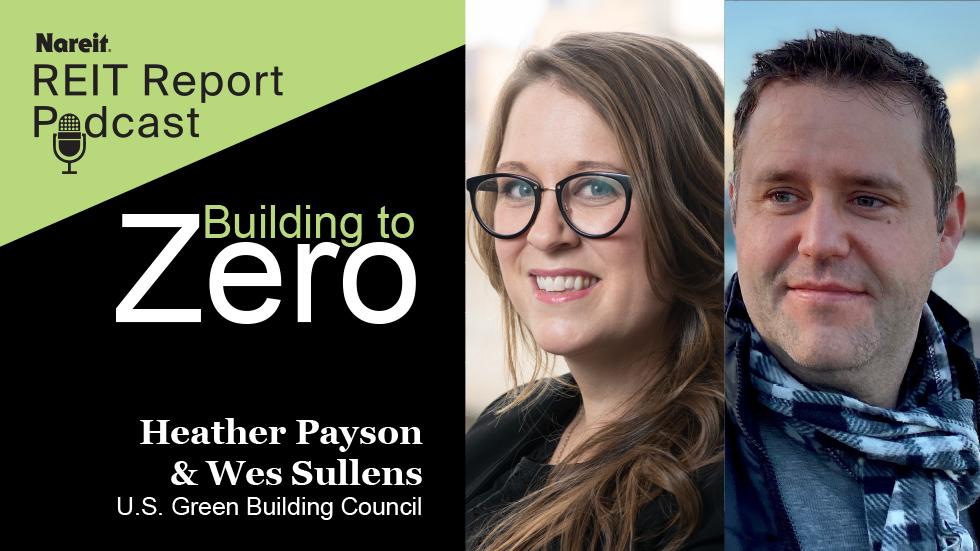
In this episode of the REIT Report special series “Building to Zero,” the U.S. Green Building Council’s Heather Payson and Wes Sullens share their perspectives on the building sector’s sustainability journey and the path forward for decarbonizing commercial real estate.
When USGBC was founded over 30 years ago and the first version of LEED was released, it established a clear and understandable framework to measure and define “green buildings.” Today, LEED has become a widely used rating system around the globe and, as a recognized indicator of leadership, has become an indispensable resource for the buildings community at large.
“There's just so much going on in this space, and the urgency is greater than ever. We have to balance the urgency of what the market needs with what's possible. While things like policy help establish a floor…. it's become even more challenging to [define] what leadership means in these times,” shares Wes Sullens, LEED Fellow and Director at USGBC. “We use our group of volunteers and experts… that help us write our rating system. It's not something we cook up in a vacuum, the idea is to make sure LEED is that consensus standard for leadership, which I think is a unique place in the market.”
USGBC’s State of Decarbonization report, produced in collaboration with Arup, was released at COP 28 in Dubai in December 2023. The report is a deeply researched snapshot of the US commercial real estate sector. Heather Payson, Director of Standards and Development for USGBC, discusses how “the report touches on crucial levers for decarbonization, electrification, retro-commissioning.” She shares that “the report talks a lot about corporate commitments and that roughly a quarter of the largest US-based REITs have serious decarbonization commitments. For me, that's just a tremendous indicator of the collective urgency we're feeling”.
Another project launched last year was Driving Action on Embodied Carbon in Buildings , developed in partnership with the Rocky Mountain Institute (RMI). Sullens shares the goals of the report, which include “enhance embodied carbon literacy. For energy efficiency and renewables, we've had 40-plus years for the industry to get up to speed on those topics. And there's a lot of savviness around there. Embodied carbon is still new, and there are lots of acronyms and terms thrown around. So, we tried to distill that down into the meaningful takeaways and the language that we can all use to talk about these things consistently.”
Listen and subscribe on your podcast platform of choice.
Other podcasts in the Building to Zero series
- DOE Better Buildings Initiative’s Support for Building Sector Decarbonization
- BXP’s Ben Myers on Electrifying the Built Environment
- Real Estate Roundtable says CRE Playing Key Role in Success of Federal Climate Programs
- Empire State Realty Trust Makes the Business Case for Decarbonization Strategy
- Norges Bank Says Real Estate Facing “Tremendous Pressure” to Decarbonize